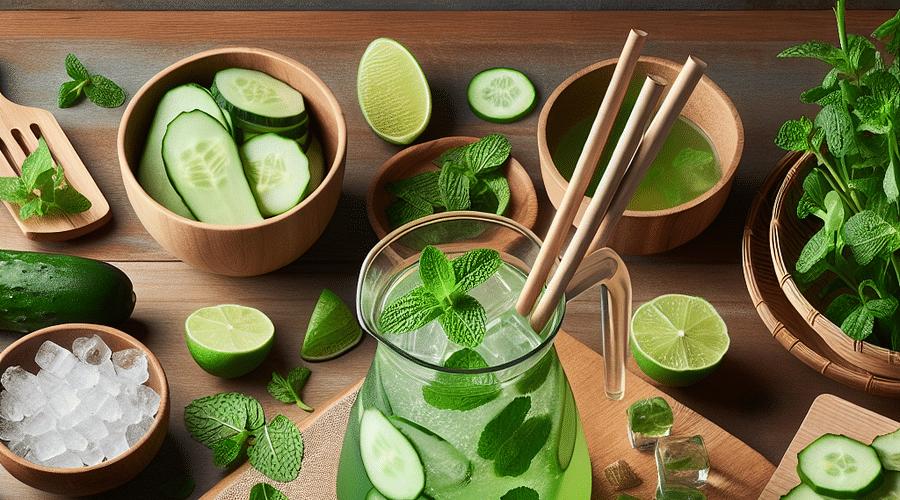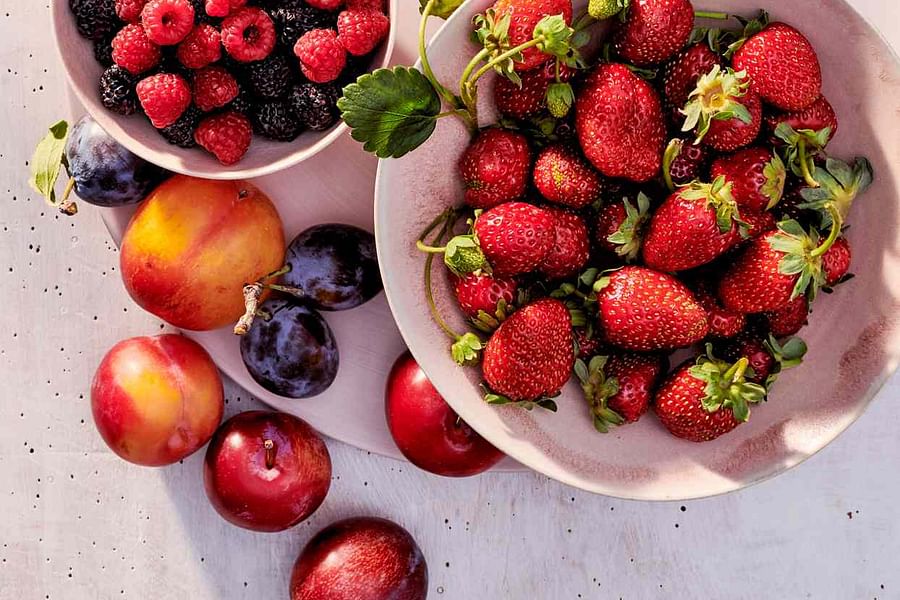Green and Clean Mocktails: How to Mix Up Sustainable and Eco-Friendly Drinks

Imagine sipping on a drink that not only tantalizes your taste buds but also embraces the ethos of sustainability. In a world where eco-conscious living is more than a trend, it's a lifestyle, we are seeing a delightful surge in green and clean mocktails. These beverages are not just alcohol-free; they're crafted with the planet in mind, using ingredients that are as kind to your body as they are to Mother Earth.
In recent years, there's been an awakening to the impact our dietary choices have on the environment. The farm-to-glass movement is gaining momentum, encouraging both mixologists and home bartenders to consider the carbon footprint of their concoctions. By choosing local and organic produce, avoiding single-use plastics, and minimizing waste, we can stir up change one glass at a time. This shift isn't just about being better stewards of the planet—it's about enjoying pure, unadulterated flavors that only nature can provide.
Selecting the right ingredients is at the heart of creating sustainable mocktails. It's about embracing seasonal fruits and vegetables, sourcing from local farmers' markets, and understanding the journey from seed to sip. By doing so, we support biodiversity and reduce transportation emissions. Moreover, using organic ingredients means saying no to harmful pesticides and chemicals—benefiting both our health and the soil.










Apart from fresh produce, there are other elements in mocktail making that require an eco-friendly eye. Sweeteners like raw honey or maple syrup can be more sustainable than processed sugars. Even ice comes into play—consider using purified water or creating flavored ice cubes that add a twist as they melt!
Mindful mixing goes beyond ingredients; it encompasses techniques that reduce waste and energy consumption. For instance, shaking or blending drinks might be invigorating but opting for stirring can often achieve a similar result with less energy use. And when it comes to garnishes, think edible or compostable—herbs from your garden or dehydrated fruit slices can add flair without adding waste.
Another aspect of mindful mixing is considering how we store our concoctions. Glassware made from recycled materials not only has character but also contributes to reducing glass waste. And if you're batch-making drinks for an event, storing them in large dispensers rather than individual bottles cuts down on packaging.
The true beauty of green mocktailing lies in the creative process—it's an art form where you become both chef and scientist, experimenting with flavors while honoring sustainability principles. Whether you're infusing herbs for a homemade syrup or muddling berries for a burst of freshness, each step is an opportunity to make decisions that benefit you and our planet.
To start your journey into eco-friendly drink mixing at home, explore recipes like refreshing cucumber lime fizz or invigorating mint juleps made with garden-fresh mint. Not only do these drinks quench thirst; they inspire us to think differently about what we consume.
Superfood ingredients can elevate your mocktail game by adding not just flavor but also nutritional benefits—think chia seeds for texture or turmeric for its anti-inflammatory properties. Mocktails crafted from common household ingredients ensure sustainability by utilizing what's already available to you. For those eager to delve deeper into this delightful world of non-alcoholic concoctions, Good Mocktail offers an array of recipes perfect for any occasion. Whether you're looking for something light and zesty for a summer afternoon with seasonal summer flavors, or perhaps something rich in antioxidants for a morning boost with healthful morning recipes, the possibilities are endless. Stay tuned as we continue this exploration into green and clean mocktails—where taste meets responsibility—and discover how easy it is to mix up drinks that do good by you and the environment.When crafting your green and clean mocktails, the focus isn't only on the absence of alcohol but also on using sustainable and organic ingredients. Opt for locally sourced fruits, vegetables, and herbs to reduce your carbon footprint. This not only supports local farmers but ensures that your ingredients haven't traveled long distances, which can heavily contribute to greenhouse gas emissions. Moreover, choosing organic produce means saying no to pesticides and chemicals that can harm our environment.
Another step towards sustainability is considering the seasonality of ingredients. Seasonal produce is fresher, tastier, and often has a smaller environmental impact than out-of-season fruits shipped from afar. Embrace the flavors of the season in your mocktails – think fresh berries in summer or crisp apples in fall. For inspiration on using seasonal ingredients in your drinks, explore our mocktail recipes using commonly found ingredients at home.
The art of mixology goes beyond just ingredients; it's also about the tools and techniques we use. To minimize waste, consider using a metal straw instead of disposable ones and opt for reusable garnish picks. When juicing citrus fruits or muddling herbs, use every part you can. Citrus peels can be twisted into beautiful garnishes or zested to add flavor to other dishes. Leftover herbs can be dried and used as aromatic infusions.
For those who enjoy a fizzy kick in their mocktails, consider investing in a soda maker instead of buying bottled carbonated water. This not only reduces plastic waste but also allows you to control the level of fizziness in your beverages. And when it comes to blending, a high-powered blender can create smooth purees without the need for straining, which means less food waste.
Now let's put all this knowledge into practice with some innovative mocktail recipes that are as kind to our planet as they are delightful on our taste buds! Whether you're craving something fruity, spicy, or herbaceous, there's an eco-friendly mocktail recipe waiting for you.
If you're looking for more creative ideas that align with your eco-conscious lifestyle, don't miss our collection of easy but delicious mocktails you can make at home. Or perhaps you're yearning for something exotic? In that case, our international mocktail recipes will transport your taste buds around the globe without leaving an environmental footprint.
Incorporating these green practices into your mixology routine not only benefits the environment but also enhances the overall quality and flavor profile of your drinks. So next time you raise a glass filled with one of these delectable concoctions from Good Mocktail's repertoire, you'll know it's brimming with both taste and integrity.
The journey towards a more sustainable lifestyle is ongoing but immensely rewarding. By choosing green and clean mocktails, we take one more step towards preserving our beautiful planet while still enjoying life's vibrant flavors. Let's continue exploring together; visit Good Mockail often for new recipes, tips on sustainability in mixology, and inspiration for living an alcohol-free life full of zest!
Remember that every small action counts when it comes to sustainability—choosing one eco-friendly practice today could lead to adopting many more tomorrow. So start mixing those green drinks with pride! And if you're ever unsure about where to begin or need some extra guidance on living a greener lifestyle through what you drink, Good Mocktail is here as your go-to source.
Post a comment